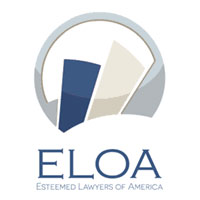Often, these employees are in a unique position to put a stop to harmful actions on the part of an employer. Reporting these actions to a supervisor, corporate management, or the appropriate government agency may save workers’ lives, protect the public against health hazards, and prevent or interrupt financial abuse of consumers. In short, it’s good for society when these employees step forward to report unlawful activity.
Some of the many areas in which whistleblowers have been instrumental in bringing wrongdoing to light include:
- • Misuse of public funds
• Medicare and Medicaid fraud and overbilling
• Dangerous working conditions
• Safety conditions at nuclear power plants
• Tobacco industry deception regarding the dangers and addictive nature of tobacco products
• Nursing home neglect and abuse
• Fraud in the mortgage industry
• Harmful policies in VA hospitals
• Automotive defects
Of course, employers who opt to engage in illegal activity or put their employees at risk would generally prefer to keep those actions secret from the agencies charged with enforcing the law. The first instinct of many employers with something to hide is to intimidate employees into keeping quiet or to terminate those who speak out. Thus, employees in California and around the country often find themselves faced with a dilemma: they’re aware of a violation of safety regulations or some other important statute or rule in the workplace, but fear retaliation from the employer if they speak up.
Naturally, both the federal government and the California state government want to remove obstacles to workers reporting dangerous conditions and other violations. Thus, both the state and federal legislatures have enacted statutes that protect reporting employees from retaliation. These statutes are often referred to as “whistleblower laws.”
A whistleblower statute is simply a law, or a provision within a law, that provides remedies to employees who choose to report illegal or dangerous activity by their employers. The first U.S. whistleblower statute was enacted in 1778, and in 2014 the Senate passed a resolution declaring a national day of appreciation for whistleblowers.
California Labor Code 1102.5 for Whistleblowers
The California whistleblower statute, §1102.5 of the California Labor Code, is more broad-based than the federal statute. California law protects employees who report any violation of state or federal law, as well as those reporting “a violation of or noncompliance with a local, state, or federal rule or regulation.” Under California law, it does not matter whether the report falls within the employee’s job duties.
The law prohibits employers from a wide range of actions, including:
• Making or enforcing any rule or policy that prohibits an employee from disclosing information to a government or law enforcement agency
• Making or enforcing any rule or policy that prevents an employee from making disclosures to a person with authority over the employee, or with investigative authority or the authority to correct the non-compliance
• Prohibiting the employee from disclosing information to or testifying before any public investigative body
The California whistleblower law has few exceptions, but does exclude employees who disclose legally protected confidential information. For example, an employee of a law firm who violates attorney-client privilege to disclose information about the client is not protected.
Employers are also prohibited from taking retaliatory action against whistleblowers based on the protected conduct, or for refusing to participate in an activity that would violate federal or state law or a federal, state, or local rule or regulation. This prohibition extends to actions taken against family members of the whistleblower.
If an employer takes retaliatory action against a whistleblower or a member of the reporting employees family, the employer may be required to:
• Reinstate the employee
• Restore work benefits
• Pay back wages
The remedy may vary depending on the circumstances, and the employer will generally be required to take whatever action is necessary to comply with the law. Corporate employers and limited liability corporations (LLCs) may also be subject to a civil penalty of up to $10,000.
United States Federal Policies for Whistleblowers
Federal whistleblower protections are similar to the protection offered by California law, but have narrower application. U.S. whistleblower protections are written into many different federal statutes, and the exact provisions vary depending on the regulation in question.
Federal law protects employees who report violations of more than 20 different federal statutes, but the covered employees, remedies available, deadlines for lodging a complaint and other elements differ depending on the underlying statute.
For example, the time frame in which a whistleblower can make a complaint for retaliatory behavior and the covered employees are different for violations of the Occupational Safety and Health Act (OSHA) than they are under the Consumer Financial Protection Act.
Whistleblower Remedies Under Federal Law
Some basic remedies are consistent across the many different federal statutes that provide protection for whistleblowers. The two core remedies available to whistleblowers generally are backpay and compensatory damages.
However, the extent of remedies available varies from statute to statute.
For example:
• Some statutes allow for punitive damages, some allow for punitive damages in a limited amount, and others do not allow for punitive damages at all
• Some provide for preliminary reinstatement of the whistleblower employee, while others do not
Whistleblower Statutes for Los Angeles County Citizens
If you are aware of unlawful or dangerous behavior on the part of your employer, but are uncertain how to proceed, educating yourself is a smart first step. Although an attorney experienced in handling whistleblower claims can assist you at any stage, getting advice early in the process can help you:
• Understand how best to protect yourself and your interests
• Know exactly what types of reporting are protected and what actions may put you at risk
• Ensure that you know how to document the process and any retaliatory action
• Know when your employer has violated your rights and it is time to consider legal action
• Understand the applicable timelines to ensure that you do not miss an opportunity for fair compensation or other remedies
Hire a California Whistleblower Attorney
Generally, California whistleblower protections are more straightforward and consistent than federal protections. However, determining whether you are protected by whistleblower statutes and which avenue provides you the best options for fighting back and securing compensation can be complicated. You may have possible remedies under both state and federal law.
Deadlines and procedures for reporting retaliatory action may vary depending on whether you are pursuing a state or federal claim, and the statute under which the violation occurred.
If you have suffered retaliatory action because you reported a legal or regulatory violation to a governmental agency, law enforcement, the California whistleblower hotline, your superior at work or another authority, it makes sense to educate yourself about your rights and options as soon as possible. An attorney experienced in pursuing compensation for whistleblowers whose employers have retaliated against them can be your best resource.










